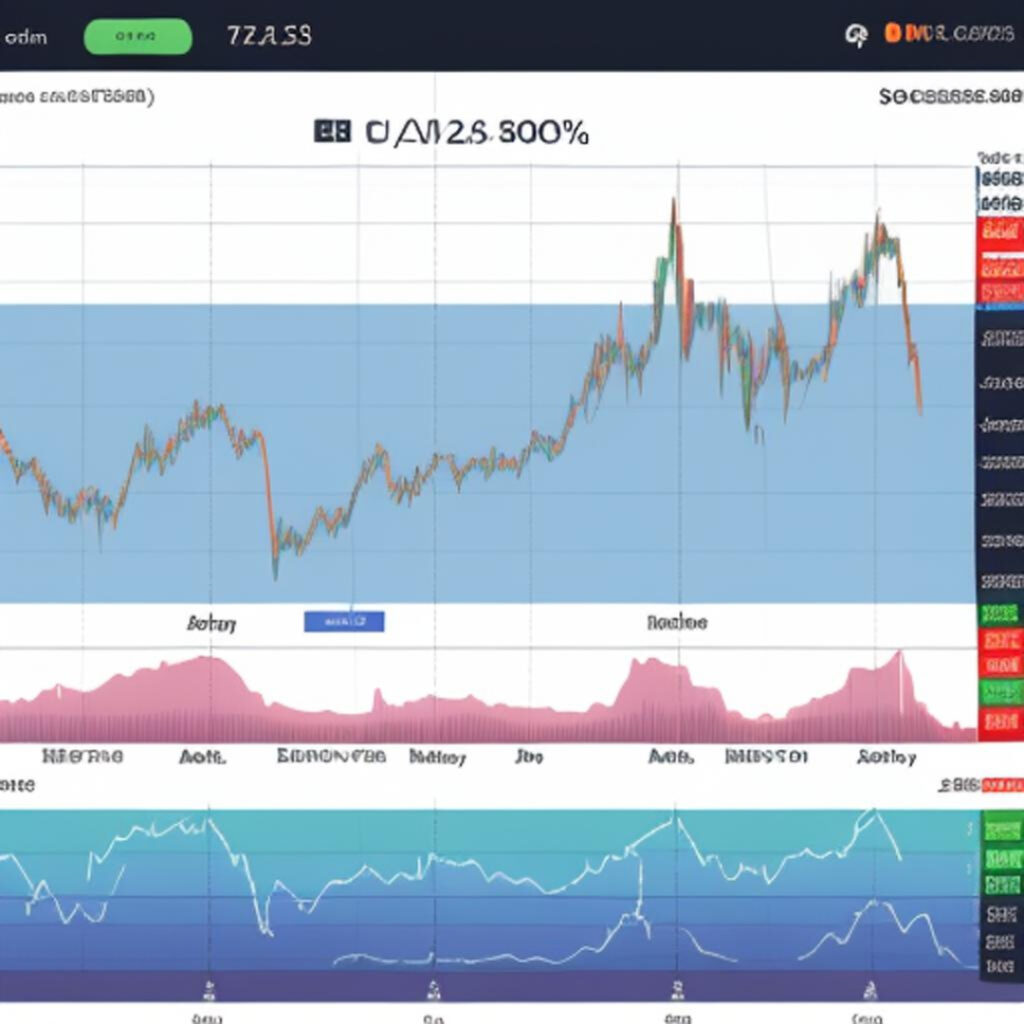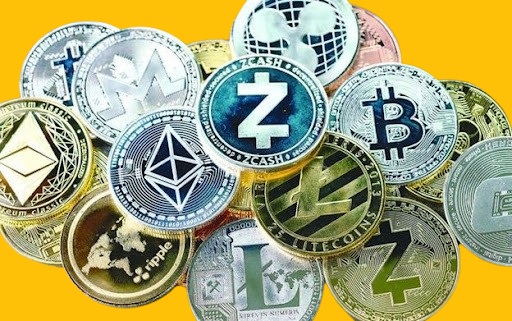Ever heard of the term “Altcoin Season” and wondered what it means? Or perhaps you’re curious about how to gauge the health and potential of the altcoin market. Welcome to the world of the Altcoin Season Index! This index is a vital tool for investors and crypto enthusiasts looking to navigate the often volatile waters of cryptocurrency investments. Let’s dive deep into what the Altcoin Season Index is and why it matters.
Understanding Altcoins
Definition of Altcoins
Altcoins, short for “alternative coins,” refer to any cryptocurrency that isn’t Bitcoin. While Bitcoin was the first cryptocurrency, altcoins were developed to improve upon or offer alternatives to Bitcoin’s limitations. They come in various flavors, including Ethereum, Ripple (XRP), Litecoin, and thousands more.
Difference Between Bitcoin and Altcoins
Bitcoin is often compared to gold; it’s the original, the most trusted, and generally considered a store of value. Altcoins, on the other hand, can be likened to silver or other precious metals that have specific industrial uses. They can offer faster transaction times, privacy features, smart contract capabilities, and more.
Popular Altcoins in the Market
Some of the top altcoins include:
- Ethereum (ETH): Known for its smart contract functionality.
- Ripple (XRP): Famous for its use in banking and financial settlements.
- Litecoin (LTC): Often seen as the silver to Bitcoin’s gold, with faster transaction processing.
What is the Altcoin Season Index?

Definition and Purpose
The Altcoin Season Index is a metric used to determine whether altcoins are outperforming Bitcoin. This index helps investors decide if it’s a good time to shift investments into altcoins from Bitcoin. When the index is high, it’s typically considered “altcoin season.”
How It’s Calculated
The index is calculated by comparing the performance of the top 50 altcoins against Bitcoin over a specific period. If more than 75% of these altcoins outperform Bitcoin, it indicates altcoin season. Conversely, if less than 25% outperform Bitcoin, it’s considered Bitcoin season.
Components of the Altcoin Season Index
Market Capitalization
Market capitalization reflects the total value of all outstanding coins of a particular cryptocurrency. A rising market cap in altcoins often signals increasing investor interest and potential for a season.
Trading Volume
Trading volume indicates the amount of an asset that’s being traded over a given period. High trading volumes in altcoins suggest increased activity and potential for price surges.
Price Movements
Significant price movements in altcoins compared to Bitcoin are a critical factor in the index. Large gains in altcoin prices typically push the index higher.
Why is the Altcoin Season Index Important?
Investor Insights
The index provides valuable insights into market dynamics, helping investors make informed decisions about where to allocate their funds.
Market Trends
Tracking the index helps identify trends in the cryptocurrency market, signaling when to potentially shift focus from Bitcoin to altcoins.
Risk Management
By understanding when altcoins are likely to perform well, investors can manage their portfolios more effectively and mitigate risks associated with market volatility.
How to Interpret the Altcoin Season Index
Reading the Index
The index is usually presented as a percentage. An index value above 75% suggests an altcoin season, while a value below 25% indicates Bitcoin season. Values in between suggest a mixed market.
Indicators of Altcoin Season
Indicators include a high percentage of altcoins outperforming Bitcoin, significant increases in altcoin market caps, and surges in altcoin trading volumes.
Indicators of Bitcoin Season
In contrast, a Bitcoin season is marked by Bitcoin outperforming most altcoins, with its dominance in market cap and trading volumes increasing.
Historical Trends in the Altcoin Season Index
Past Altcoin Seasons
Historically, altcoin seasons have been marked by rapid price increases in altcoins, often following major Bitcoin bull runs. These periods offer substantial gains but also come with high risks.
Key Patterns and Lessons
Patterns indicate that altcoin seasons are often short-lived. Investors should be cautious and consider taking profits when indicators suggest the season is peaking.
Factors Influencing the Altcoin Season Index
Market Sentiment
Investor sentiment can significantly impact the index. Positive news and market optimism often drive altcoin prices up.
Technological Advancements
Innovations and upgrades in blockchain technology can lead to increased interest and investment in specific altcoins, influencing the index.
Regulatory News
Government regulations and policies can either boost or hinder the growth of altcoins, thus affecting their performance relative to Bitcoin.
Altcoin Season vs Bitcoin Season
Key Differences
Altcoin season is characterized by higher gains in altcoins compared to Bitcoin, while Bitcoin season sees Bitcoin outperforming most altcoins.
Investment Strategies
During altcoin season, diversifying investments into top-performing altcoins can yield high returns. In Bitcoin season, focusing on Bitcoin may be safer and more profitable.
Tools and Resources to Track the Altcoin Season Index
Websites and Platforms
Several platforms offer real-time tracking of the Altcoin Season Index, including Blockchaincenter and CoinMarketCap.
Mobile Apps
Apps like Blockfolio and CoinGecko provide mobile access to track the index and other market trends.
Expert Opinions on the Altcoin Season Index
Industry Leaders’ Insights
Experts often use the index to gauge market cycles and provide investment advice. Many believe it’s a useful tool for timing market entries and exits.
Predictions and Forecasts
While no tool can predict the future with certainty, historical patterns and expert analysis can offer forecasts about upcoming altcoin seasons.
Common Misconceptions About Altcoin Season
Myths vs Reality
One common myth is that altcoin seasons last as long as Bitcoin bull runs. In reality, they tend to be shorter and more volatile.
Clarifying Common Confusions
Another misconception is that all altcoins will perform well during altcoin season. It’s crucial to research and choose altcoins with solid fundamentals and strong market potential.
Practical Tips for Investing During Altcoin Season
Diversification Strategies
Spread investments across multiple altcoins to reduce risk. Don’t put all your eggs in one basket.
Timing the Market
While timing the market can be challenging, using the Altcoin Season Index as a guide can help identify optimal entry and exit points.
Risk Mitigation
Always be prepared for high volatility. Set stop-loss orders and be ready to act if the market moves against your positions.
Potential Risks of Altcoin Season
Volatility
Altcoin prices can swing wildly, leading to potential losses. Be aware of the high-risk nature of these investments.
Scams and Frauds
The altcoin market is rife with scams. Always conduct thorough research and invest in well-established coins.
Overhype
During altcoin season, hype can drive prices unsustainably high. Be cautious of jumping into overhyped projects without proper analysis.
Conclusion
The Altcoin Season Index is an invaluable tool for navigating the dynamic world of cryptocurrency investments. By understanding its components, interpreting its signals, and being aware of the risks, investors can make more informed decisions. Whether you’re a seasoned trader or a curious newcomer, keeping an eye on the Altcoin Season Index can help you stay ahead in the ever-evolving crypto market.
FAQs
What is the best way to track the Altcoin Season Index?
The best way to track the index is through reputable websites like Blockchaincenter or CoinMarketCap, which provide real-time data and analysis.
How often does an Altcoin Season occur?
Altcoin seasons don’t have a fixed schedule and can vary based on market conditions. Historically, they often follow significant Bitcoin bull runs.
Can the Altcoin Season Index predict future trends?
While the index provides valuable insights, it cannot predict the future with certainty. It’s best used in conjunction with other market analysis tools.
Is investing in altcoins during Altcoin Season risky?
Yes, investing in altcoins can be highly risky due to their volatility and potential for scams. It’s important to do thorough research and manage risks effectively.
What are the signs that an Altcoin Season is ending?
Signs include a slowdown in altcoin price gains, increasing dominance of Bitcoin, and a decrease in altcoin trading volumes.
